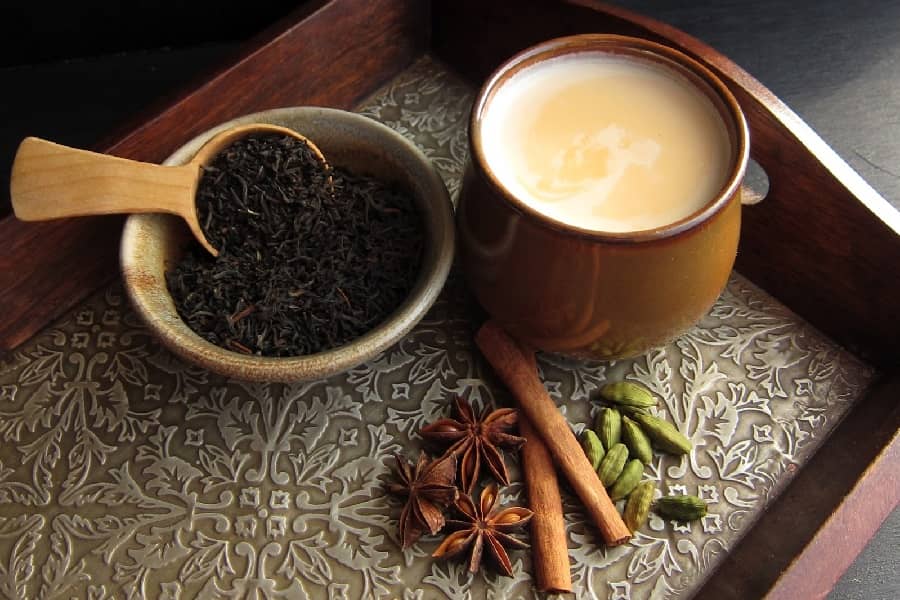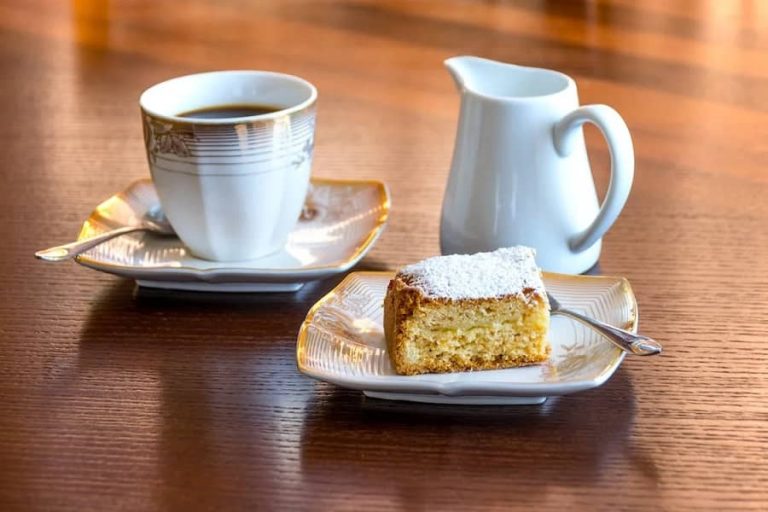Chai Tea While Breastfeeding
Chai tea is a popular beverage that has gained recognition for its potential health benefits, such as anti-inflammatory and antioxidant properties that can improve cardiovascular health and digestion. On the other hand, breastfeeding provides numerous nutritional and emotional benefits that are essential for both the mother and child's well-being. Therefore, breastfeeding mothers might wonder whether it is safe to consume chai tea while breastfeeding and if chai tea may have any positive or negative effects. In this article, we will examine the safety, potential benefits, and risks of drinking chai tea while breastfeeding to help mothers make informed choices.
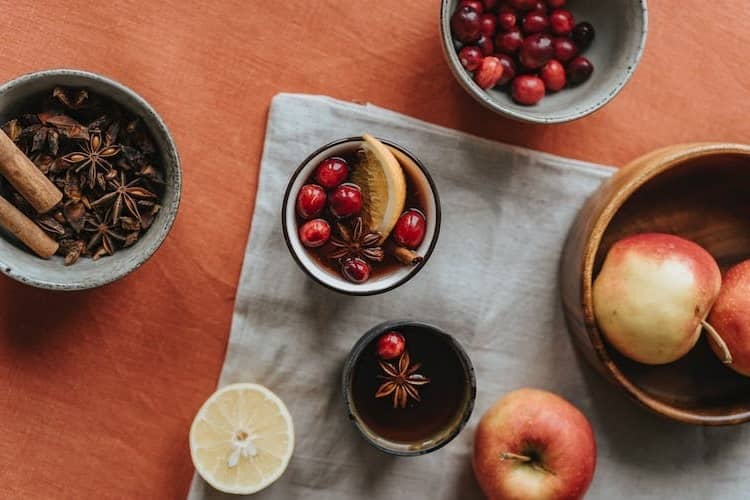
Can breastfeeding mothers drink chai tea?
Chai tea made from standard ingredients is safe for breastfeeding mothers. However, it is essential to take into account the amount and frequency of chai tea consumption, as well as the presence of caffeine and potential added sugars. While the caffeine content in chai tea is lesser than coffee, high consumption of caffeine can potentially affect the quality and quantity of breastmilk. Moreover, some spices present in chai tea, such as nutmeg, may be harmful if consumed in large amounts, leading to undesirable effects on the infant. Nevertheless, drinking limited amounts of chai tea may provide potential health benefits to breastfeeding mothers and infants, such as reducing inflammation and aiding digestion.
A. Safety of chai tea for breastfeeding mothers
Chai tea in moderation is safe for breastfeeding mothers. Choosing homemade chai tea or a high-quality, commercially produced variant can help restrict the risk of additives that might harm the infant. Breastfeeding mothers must be cautious of caffeine consumption in their diet, and chai tea contains caffeine that might pass through breastmilk. Therefore, breastfeeding mothers must monitor their caffeine intake through a variety of sources. Limiting the consumption of chai tea to a maximum of three cups a day or switching to a decaf variant can help their baby avoid the effects of caffeine. Additionally, consuming chai tea two hours after feeding the infant can prevent excess caffeine build-up in the mother's and baby's system.
B. Potential benefits of drinking chai tea while breastfeeding
Chai tea may offer various potential health benefits to breastfeeding mothers and infants. The tea's antioxidant properties can protect both the mother and her baby from cellular damage and inflammation and alleviate digestive issues. Steeping chai tea with cinnamon, a spice commonly found in chai tea, can improve insulin sensitivity, lower blood sugar levels, and reduce the risk of postpartum diabetes in breastfeeding mothers. The anti-inflammatory properties of ginger and other spices present in chai tea may relieve pain and inflammation in the breasts, especially during mastitis treatment.
C. Potential risks of drinking chai tea while breastfeeding
Like any other food or beverage, chai tea might have potential risks for breastfeeding mothers and their infants. Caffeine in chai tea, if consumed beyond the recommended limits, can cause sleeplessness, irritability, restlessness, or affect the baby's sleep pattern. Excessive intake of some spices in chai tea, such as nutmeg, may lower the seizure threshold in infants. Moreover, ginger may act as a blood thinner, which can increase the risk of bleeding in some breastfeeding mothers. In rare cases, some infants might experience allergic reactions to some of chai tea's constituent spices, such as clove or cardamom.
To summarize, drinking chai tea while breastfeeding is generally safe and can provide health benefits if consumed in moderation. Breastfeeding mothers must consider the quality, amount and frequency of consumption, and potential side effects of consuming chai tea while breastfeeding to ensure the safety of their infants. Choosing a high-quality, homemade chai tea variant, monitoring caffeine intake, and checking their baby's reaction to the tea can minimize the risks associated with chai tea consumption.
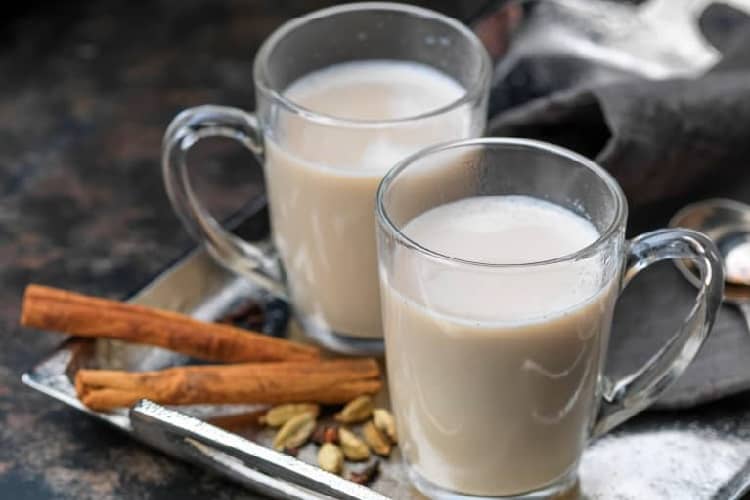
How chai tea may impact breastfeeding?
The amount and frequency of chai tea consumption can affect breastfeeding and the quality of breastmilk. Caffeine presence in chai tea can cause sleep issues and irritability in infants, particularly if consumed in large amounts. Furthermore, spices like cinnamon, ginger, and clove present in chai tea may cause allergy-like symptoms in infants, such as rashes and hives, or affect the taste of breastmilk. Therefore, it is best for breastfeeding mothers to monitor their intake of chai tea and ensure that the baby has not displayed any adverse reaction to it.
A. Effects of caffeine on breastfeeding mothers and infants
Caffeine is a stimulant found in many sources of food and beverages, including coffee, tea, and chocolate. Breastfeeding mothers who consume caffeine can pass it through breastmilk to their infants. Excessive caffeine intake can cause the baby to be restless, irritable, and result in frequent wakefulness or colic-like symptoms. Caffeine can also decrease iron absorption, causing less iron to appear in the breastmilk, which can reduce the iron status of the mother and baby. Therefore, it is essential for breastfeeding mothers to limit their caffeine intake and monitor their infant for any signs of discomfort.
B. Effects of spices in chai tea on breastmilk and infants
Chai tea comprises a blend of herbs and spices that produce a distinctive flavor and aroma. While consuming moderate amounts of chai tea is generally safe, excessive consumption of some spices may have side effects, especially for infants. For example, nutmeg, which is present in some chai tea blends, is considered toxic in large quantities and can cause hallucinations or seizures in infants. Additionally, some infants may be allergic to specific spices included in chai tea, leading to rashes, hives, or respiratory issues. Breastfeeding mothers must keep an eye out for any allergic reactions in their infant and avoid consuming spices that trigger a reaction.
C. Quantity of chai tea a breastfeeding mother can consume
The quantity of chai tea a breastfeeding mother can consume is dependent on the caffeine content and the mother's tolerance and sensitivity levels. The American Academy of Pediatrics suggests that breastfeeding mothers can consume regular tea or chai tea in moderation, limiting their intake to three 8-ounce cups a day. Homemade chai tea or commercially made chai tea without added sugars and modifications provides a safe option for breastfeeding mothers. To reduce the impact of caffeine content, mothers can limit intake, switch to a decaffeinated variant, or drink the tea after breastfeeding to help the caffeine metabolize adequately and safeguard the infant from the effects of caffeine.
In summary, breastfeeding mothers can safely consume chai tea in moderation, providing they monitor their caffeine intake and spice consumption. Caffeine and excessive spice intake pose risks for infants, while moderate caffeine intake and high-quality ingredients can potentially offer health benefits to both mothers and infants. Breastfeeding mothers should consult their healthcare provider if they have concerns about incorporating chai tea into their diet.
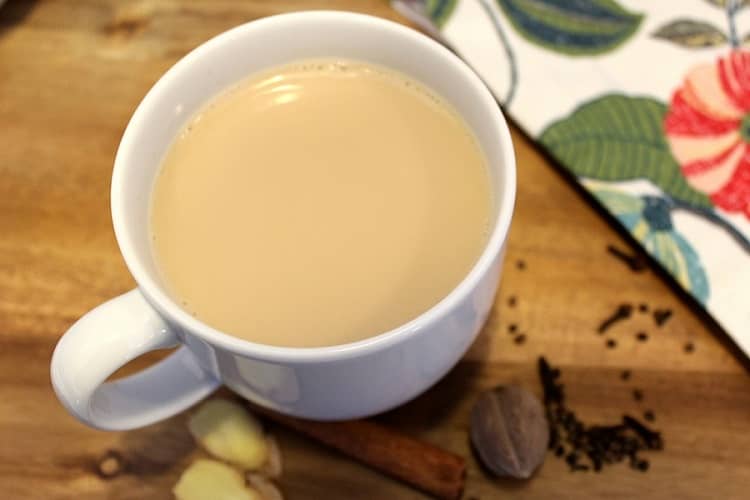
How to consume chai tea while breastfeeding safely?
To consume chai tea safely while breastfeeding, it is vital to consider the quality, amount, and frequency of the beverage. A breastfeeding mother should choose a high-quality tea with a low caffeine content and no added sugars, preferably homemade chai tea. The maximum amount of caffeine intake suggested for breastfeeding mothers is 300mg or less per day, making it crucial to drink chai tea in moderation. Medical professionals recommend waiting two hours after breastfeeding before consuming chai tea. This time gap allows some amount of caffeine to leave the mother's system therefore reduces the potential harmful effects on the baby. In case the baby displays any signs of discomfort, mothers must temporarily avoid a particular spice or combining spices that may have caused discomfort.
A. Choosing the right type of chai tea
Choosing the right type of chai tea is vital for breastfeeding mothers. It is essential to opt for high-quality chai tea or make homemade chai tea using natural ingredients to minimize the risks of additives or contaminants. Be sure to examine the ingredients list for possibly harmful substances and caffeine content. To lessen the baby's exposure to caffeine, look for chai tea blends that use decaffeinated tea. Additionally, buy chai tea from reputable sources to ensure the tea meets safety standards. You can try Harney & Sons Decaffeinated-Tea.
B. Preparing chai tea properly
Preparing chai tea the proper way is crucial for breastfeeding mothers. To reduce the caffeine intake, start by selecting decaffeinated tea or steep regular tea for a shorter duration. Using natural sweeteners such as honey or maple syrup can add a touch of sweetness to the tea. To decrease the impact of spices, use a small number of spices and adjust the quantity as required. Preparing homemade chai tea ensures mothers have control over the ingredients used, providing a safer option for breastfeeding mothers.
C. Alternative options for breastfeeding mothers who want to consume chai tea
Breastfeeding mothers looking for alternative options to consume chai tea can try herbal tea varieties. Many herbal teas are safe and caffeine-free, such as ginger tea, spearmint tea, or chamomile tea, offering a warm and flavorful beverage option for mothers. In addition, mothers can choose to drink chai tea after breastfeeding or pump breast milk beforehand to minimize the caffeine exposure to the baby. Mothers may consider speaking with their healthcare provider to understand better how to consume chai tea safely while breastfeeding.
In conclusion, breastfeeding mothers may safely consume chai tea by choosing the right type, preparing it properly, and opting for caffeine-free varieties. Mothers must monitor their caffeine intake, adjust spice quantity, and watch their infant for any adverse reactions or allergic symptoms. Drinking herbal tea or waiting to drink chai tea after breastfeeding offers alternative options for breastfeeding mothers who want to enjoy the flavorful beverage while breastfeeding. Breastfeeding mothers may consult their healthcare provider to understand better how to consume chai tea safely while breastfeeding based on their specific circumstances.
Conclusion
In conclusion, chai tea is safe for breastfeeding mothers to consume in moderation, and it may offer potential health benefits. Breastfeeding mothers must consider the quantity and frequency of chai tea intake, the quality of ingredients used, and potential side effects to ensure the safety of their infants. Drinking moderate amounts of chai tea made from high-quality ingredients can provide anti-inflammatory, antioxidant, and digestive benefits. As with all other dietary choices, breastfeeding mothers must consult their primary healthcare provider before making any significant changes.



